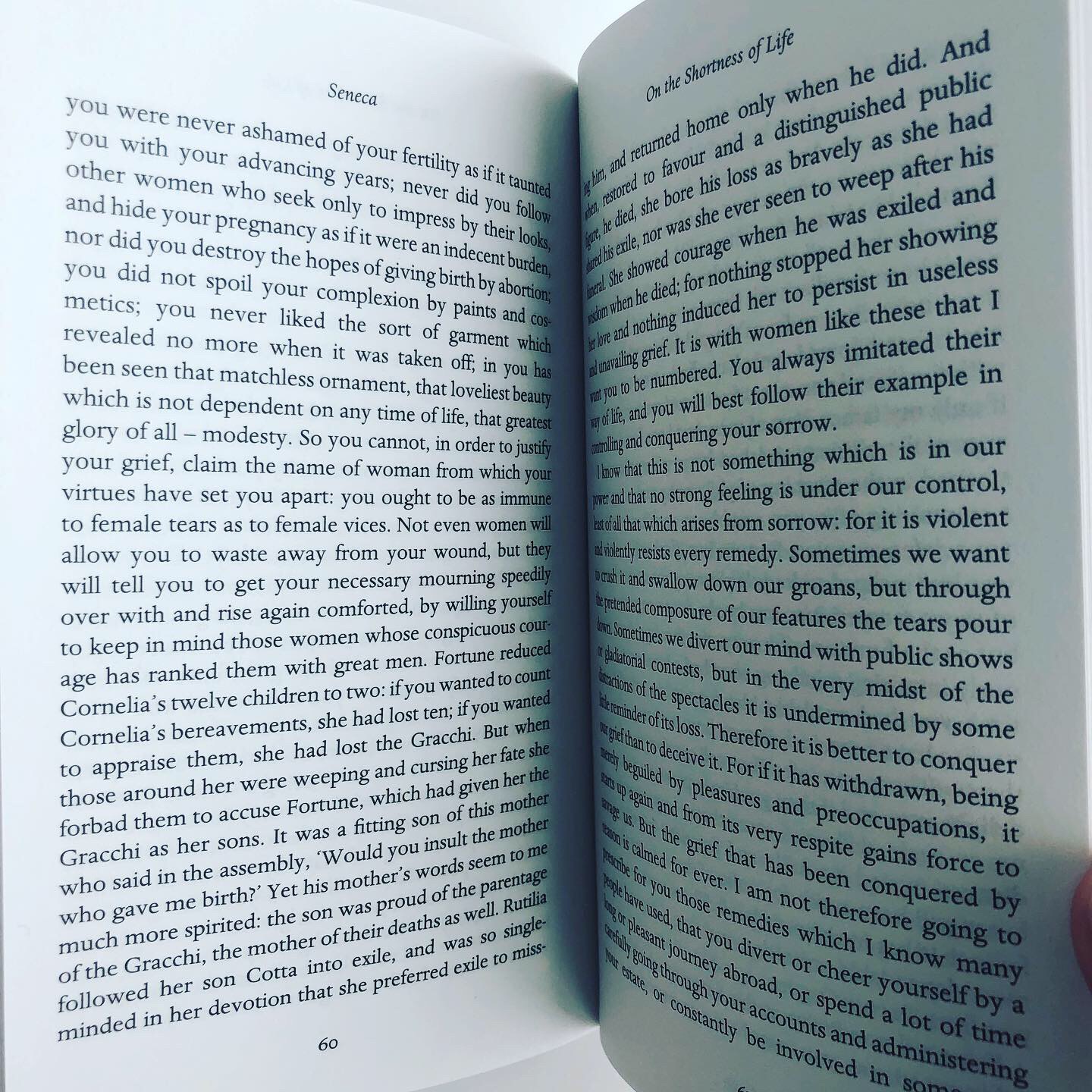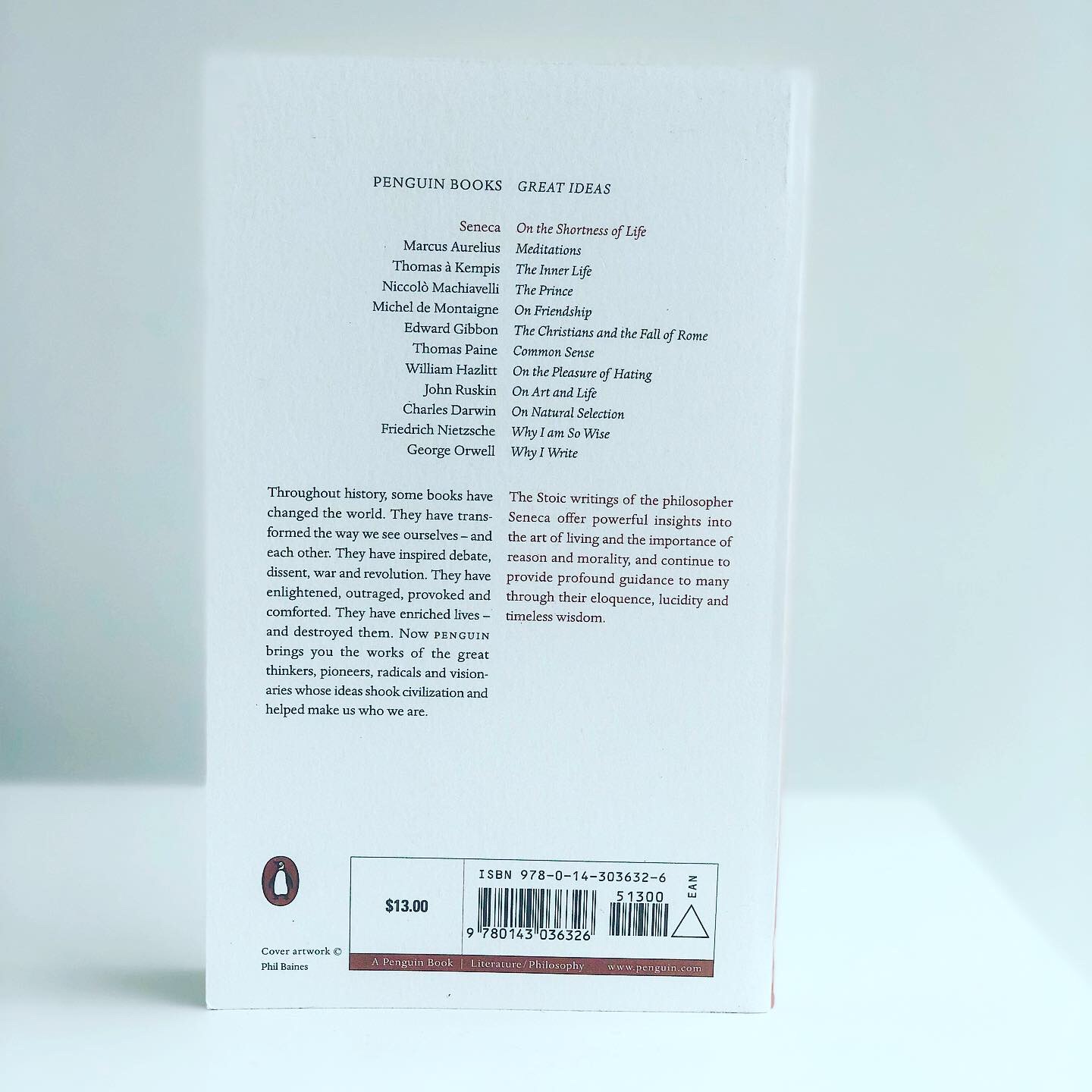On the Shortness of Life



- Form: Hardcover
- Purchase Link
- Edition: Penguin Books
- Page Count: 106
There is a haunting obviousness to Seneca’s argument; that while we obsess over our financial and social capital as sacred to our identities, not to be taken from us, we neglect our temporal capital, which is perhaps far and away the most important. “In guarding their fortune men are often closefisted, yet, when it comes to the matter of wasting time, in the case of the one thing in which it is right to be miserly, they show themselves most extravagant.”
We allow others to take it from us, in some cases continuously and for the entirety of our lives. It is always counterintuitive, socially challenging and at times alienating to address this problem so core to our identities, but we must if we are to live full and engaging lives.
My favorite quote from the book: “It is not that we have a short time to live, but that we waste a lot of it. Life is long enough, and a sufficiently generous amount has been given to us for the highest achievements if it were all well invested. But when it is wasted in heedless luxury and spent on no good activity, we are forced at last by death’s final constraint to realize that it has passed away before we knew it was passing. So it is: we are not given a short life but we make it short, and we are not ill-supplied but wasteful of it… Life is long if you know how to use it.”